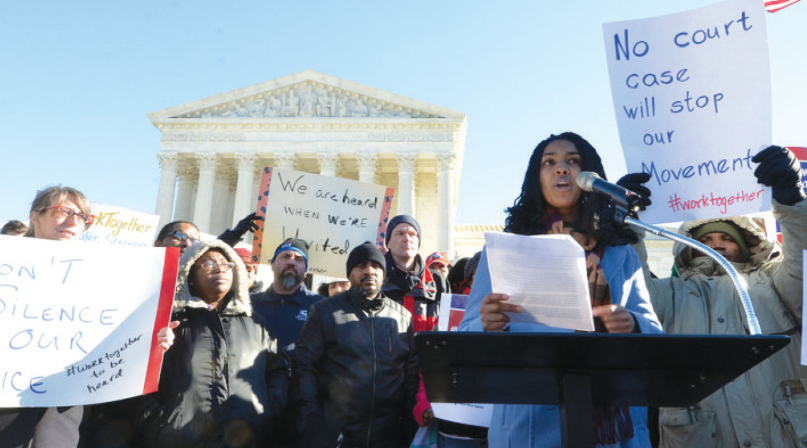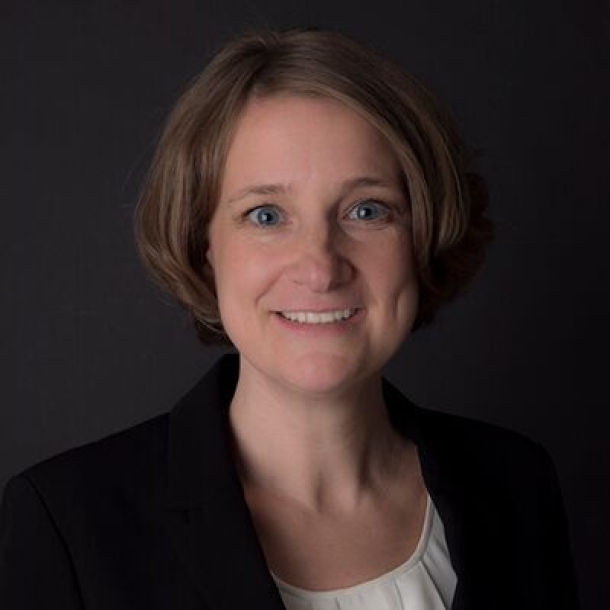High court case challenges public unions

California Teachers Association member Maya Walker, a library media technician in Hayward, Calif., delivers remarks outside the U.S Supreme Court on Monday, Jan. 11. Photo by Patrick G. RyanThe U.S. Supreme Court heard arguments about free riders in public employee unions
It was a typical oral argument at the U.S. Supreme Court in a “big” case. Protesters outside with opposing messages tried to out yell each other, but everyone inside was listening to Justice Anthony Kennedy.
In Friedrichs v. California Teachers Association the court will decide whether to overrule a nearly 40-year-old precedent requiring public sector employees who don’t join the union to pay their “fair share” of collective bargaining costs. More than 20 states have enacted statutes authorizing fair share.
In its 1977 decision in Abood v. Detroit Board of Education, the Supreme Court held that the First Amendment does not prevent “agency shop” arrangements where public employees who do not join the union are still required to pay their “fair share” of union dues for collective bargaining, contract administration and grievance-adjustment. The rationale for an agency fee is that the union may not discriminate between members and nonmembers in performing these functions. So no free riders are allowed.
In two recent cases — Knox v. SEIU (2012) and Harris v. Quinn (2014) — the high court was very critical of Abood, yet neither case squarely raised the issue of whether Abood should be overturned.
During the Jan. 14 oral arguments, Kennedy, whose vote could be crucial in this case, asked questions of both sides. But he repeatedly expressed the view that many teachers may disagree with positions that the teachers union takes on issues like tenure, merit pay and class size. He characterized the real problem with agency fee as “compelled riders” not free riders.
Overturning precedent is a drastic step so, unsurprisingly, many of the questions — particularly from the more liberal justices — addressed that possibility. Justice Stephen Breyer’s questions were the most impassioned.
He said that overturning Abood would mean overturning other precedent-setting decisions including Keller v. State Bar of California (1990, bar dues for attorneys) and Board of Regents v. Southworth (student activity fees, 2000). He asked how the country would view the Supreme Court’s role in providing stability if all these cases were overturned.
Many court observers after reviewing the oral arguments expect the union to lose this case, striking another blow to organized labor.
Attachments
Related News

Podcast: Developing your county workforce
Counties are finding a renewed interest in professional development as a feature of their careers.

